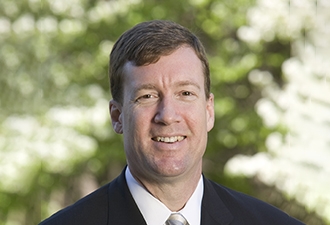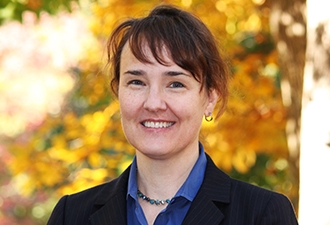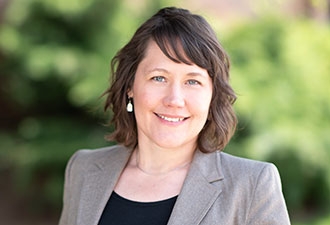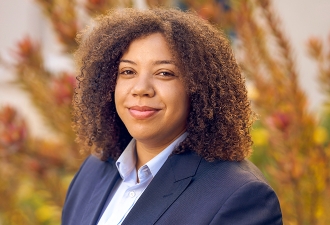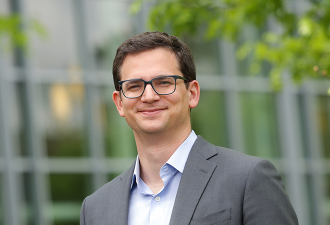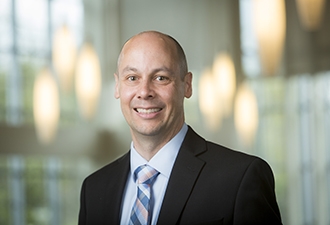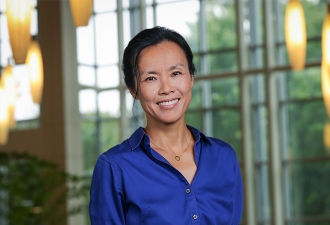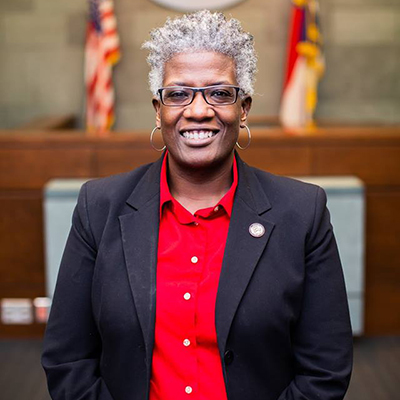Criminal Law and Policy
The practice of criminal law demands a comprehensive understanding of the U.S. Constitution, criminal statutes, and the rules of federal and state criminal procedure, ethics, and evidence. It also requires an awareness of the social and political factors that underlie criminal justice policy.
Duke Law faculty experts’ research, scholarship, and teaching in the area of criminal justice are informed by their experience as prosecutors and defense attorneys, their longstanding engagement with law reform efforts, their ability to find insights in data and science, and their commitment to justice.
Students learn all aspects of litigating in the criminal sphere and have the opportunity to get practical experience through externships in prosecutors’ and defenders’ offices, by participating in policy-based empirical research on criminal justice with top scholars, by conducting preliminary investigations of inmates’ claims of innocence through the student-led Duke Law Innocence Project, and by undertaking thorough investigations and the litigation of claims of innocence in the Wrongful Convictions Clinic, and by researching, drafting, and arguing federal appeals for parties without representation through the Appellate Litigation Clinic. They also can be part of evidence-based research and reform through the Law School’s two research centers focused on criminal law: the Center for Criminal Justice and Professional Responsibility and the Wilson Center for Science and Justice.
Featured Faculty

James E. Coleman, Jr.
John S. Bradway Professor of the Practice of Law
Professor Jim Coleman worked for 15 years to prove Wrongful Convictions Clinic client Charles Ray Finch was innocent of the murder that sent him to death row in 1976. After Coleman argued Finch’s appeal before the Fourth Circuit Court of Appeals, the court issued an opinion in his favor based on an “impermissibly suggestive” police line-up, ballistic evidence that failed to connect a shotgun shell from Finch’s car with the crime scene, and significant credibility problems with the state’s only eyewitness and a key investigator. Finch received a pardon of innocence from North Carolina Gov. Roy Cooper in 2021.
More Faculty
Selected Courses
225 Criminal Procedure: Adjudication
A study of the basic rules of criminal procedure, beginning with the institution of formal proceedings. Subjects to be covered include prosecutorial discretion, the preliminary hearing, the grand jury, criminal discovery, guilty pleas and plea bargaining, jury selection, pretrial publicity, double jeopardy, the right to counsel, and professional ethics in criminal cases.
306 Corporate Crime
This course serves as an introduction to the field of corporate crime, which now covers a large realm of government and law firm practice. The course will give students a first exposure to: (1) the contemporary practice in federal government agencies and medium to large corporate law firms of investigating, sanctioning, and representing corporations and their managers involved in potential criminal violations (and certain civil analogues), and the law that governs those processes; and (2) the debate in the public policy realm over whether, why, how, and when the criminal law should be applied in the corporate and business context.
This field is large, complex, and developing rapidly. This course therefore can cover only a selection of topics, and will emphasize policy and the need to confront gaps and uncertainty in doctrine. As there is no unitary body of black letter law in this field, students should not expect this to be that form of law course. Coverage is likely to include mail and wire fraud, perjury and obstruction of justice, securities fraud (including insider trading and accounting fraud), the Foreign Corrupt Practices Act, corporate criminal liability, grand jury powers and procedure, representation of entities and individuals, the Fifth and Sixth Amendments in the corporate context, plea and settlement agreements, and sentencing.
312 Cybercrime
The course will survey the legal issues raised by cyber-related crime. The bulk of the course will be organized around two overarching themes: (1) substantive criminal law (i.e., the scope, structure, and limitations of the criminal laws that reach cyber-related crime); and (2) criminal procedure (i.e., the scope, structure, and limitations of the privacy laws and constitutional principles that regulate law enforcement investigations of cyber-related crime). Along the way, we will also consider topics that frequently arise in cyber-related investigations and prosecutions, such as: jurisdictional issues (e.g., federal/state dynamics and international cooperation in collecting evidence); national security considerations (e.g., state-sponsored intrusions and IP theft, terrorists’ use of the internet, government surveillance); and encryption. We will make regular use of contemporary case studies, including several drawn from my own experience in the national security arena. We will also examine threats that pose particularly difficult legal and policy challenges, such as foreign interference in U.S. elections and misinformation.
502 Forensics Litigation
Forensic evidence, from DNA to fingerprints to ballistics, has never been more important in criminal cases. However, litigating scientific evidence in the courtroom is not like it appears on TV shows like CSI. It is challenging and requires some specialized skills. We are again offering a short course to provide those skills. By the end of the course you will be able to handle sophisticated scientific evidence in the courtroom. While the focus is on forensics used in criminal cases, many of the same principles and skills apply when litigating scientific evidence in any type of case. The course is a practicum: a scientific evidence trial advocacy course. We will begin with introductory lectures both on forensics and how to prepare for trial, so that students will be fully ready for their parts in the last third of the course, which will focus on the trial simulations. During the simulations, the prosecutors will first interview their forensic experts (one of your instructors), and talk to them about their case file documents, which are taken from real cases. The class will break into groups to brainstorm potential motions to exclude expert testimony or limit language and discuss collectively as a class, both sides will conduct mock trials with direct and cross-examination of forensic experts before a judge, and finally, we will conduct closings. These sessions will be spread out over several weeks, to permit watching video of prior sessions to prepare for the next portion of the trial. We will also exchange feedback in between each session to talk about what worked and what did not. Each student will have a chance to present in these simulations. The course will also be to open to a select group of experienced practicing criminal lawyers who will collaborate with students throughout the simulations.
511 International Criminal Law
“An international crime,” wrote eminent legal scholar George Schwarzenberger in 1950, "presupposes the existence of an international criminal law. Such a branch of international law does not exist." This course will begin by probing the concept of international criminal law. What does it mean to say that certain conduct constitutes an "international crime"? What are the objectives of such a legal regime? We will then examine the law of genocide, war crimes, crimes against humanity, and aggression, as well as “treaty crimes,” such as terrorism offenses. Particular attention will be focused on the question of jurisdiction over such offenses in national courts and international tribunals — and on immunities to such jurisdiction.
225 Criminal Procedure: Adjudication
A study of the basic rules of criminal procedure, beginning with the institution of formal proceedings. Subjects to be covered include prosecutorial discretion, the preliminary hearing, the grand jury, criminal discovery, guilty pleas and plea bargaining, jury selection, pretrial publicity, double jeopardy, the right to counsel, and professional ethics in criminal cases.
306 Corporate Crime
This course serves as an introduction to the field of corporate crime, which now covers a large realm of government and law firm practice. The course will give students a first exposure to: (1) the contemporary practice in federal government agencies and medium to large corporate law firms of investigating, sanctioning, and representing corporations and their managers involved in potential criminal violations (and certain civil analogues), and the law that governs those processes; and (2) the debate in the public policy realm over whether, why, how, and when the criminal law should be applied in the corporate and business context.
This field is large, complex, and developing rapidly. This course therefore can cover only a selection of topics, and will emphasize policy and the need to confront gaps and uncertainty in doctrine. As there is no unitary body of black letter law in this field, students should not expect this to be that form of law course. Coverage is likely to include mail and wire fraud, perjury and obstruction of justice, securities fraud (including insider trading and accounting fraud), the Foreign Corrupt Practices Act, corporate criminal liability, grand jury powers and procedure, representation of entities and individuals, the Fifth and Sixth Amendments in the corporate context, plea and settlement agreements, and sentencing.
312 Cybercrime
The course will survey the legal issues raised by cyber-related crime. The bulk of the course will be organized around two overarching themes: (1) substantive criminal law (i.e., the scope, structure, and limitations of the criminal laws that reach cyber-related crime); and (2) criminal procedure (i.e., the scope, structure, and limitations of the privacy laws and constitutional principles that regulate law enforcement investigations of cyber-related crime). Along the way, we will also consider topics that frequently arise in cyber-related investigations and prosecutions, such as: jurisdictional issues (e.g., federal/state dynamics and international cooperation in collecting evidence); national security considerations (e.g., state-sponsored intrusions and IP theft, terrorists’ use of the internet, government surveillance); and encryption. We will make regular use of contemporary case studies, including several drawn from my own experience in the national security arena. We will also examine threats that pose particularly difficult legal and policy challenges, such as foreign interference in U.S. elections and misinformation.
502 Forensics Litigation
Forensic evidence, from DNA to fingerprints to ballistics, has never been more important in criminal cases. However, litigating scientific evidence in the courtroom is not like it appears on TV shows like CSI. It is challenging and requires some specialized skills. We are again offering a short course to provide those skills. By the end of the course you will be able to handle sophisticated scientific evidence in the courtroom. While the focus is on forensics used in criminal cases, many of the same principles and skills apply when litigating scientific evidence in any type of case. The course is a practicum: a scientific evidence trial advocacy course. We will begin with introductory lectures both on forensics and how to prepare for trial, so that students will be fully ready for their parts in the last third of the course, which will focus on the trial simulations. During the simulations, the prosecutors will first interview their forensic experts (one of your instructors), and talk to them about their case file documents, which are taken from real cases. The class will break into groups to brainstorm potential motions to exclude expert testimony or limit language and discuss collectively as a class, both sides will conduct mock trials with direct and cross-examination of forensic experts before a judge, and finally, we will conduct closings. These sessions will be spread out over several weeks, to permit watching video of prior sessions to prepare for the next portion of the trial. We will also exchange feedback in between each session to talk about what worked and what did not. Each student will have a chance to present in these simulations. The course will also be to open to a select group of experienced practicing criminal lawyers who will collaborate with students throughout the simulations.
511 International Criminal Law
“An international crime,” wrote eminent legal scholar George Schwarzenberger in 1950, "presupposes the existence of an international criminal law. Such a branch of international law does not exist." This course will begin by probing the concept of international criminal law. What does it mean to say that certain conduct constitutes an "international crime"? What are the objectives of such a legal regime? We will then examine the law of genocide, war crimes, crimes against humanity, and aggression, as well as “treaty crimes,” such as terrorism offenses. Particular attention will be focused on the question of jurisdiction over such offenses in national courts and international tribunals — and on immunities to such jurisdiction.
Wrongful Convictions Clinic
The Wrongful Convictions Clinic investigates plausible claims of innocence made by North Carolina inmates convicted of felonies. Students in the clinic study the causes of wrongful convictions, including mistaken eyewitness identification, false confessions, faulty forensic evidence, and “jailhouse snitches.” Student-attorneys work under the supervision of faculty to manage cases and perform a wide range of duties, including interviewing the inmates, locating and interviewing witnesses, gathering documentation, writing legal documents and memos, and working with experts.
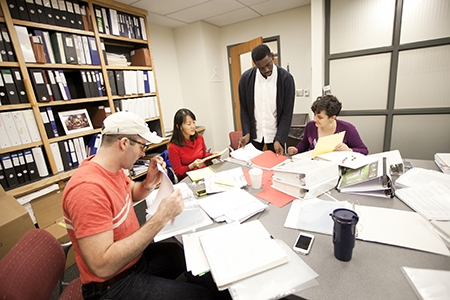
Appellate Litigation Clinic
The Appellate Litigation Clinic enables students to develop litigation skills by working on federal appeals. The clinic’s supervising attorney accepts appointments from federal appellate courts in appropriate appeals where parties lack representation. In such cases, students work in teams; they review the record, conduct legal research, draft and edit opening and reply briefs, prepare the excerpts of record for the court of appeals, and help prepare for oral argument.
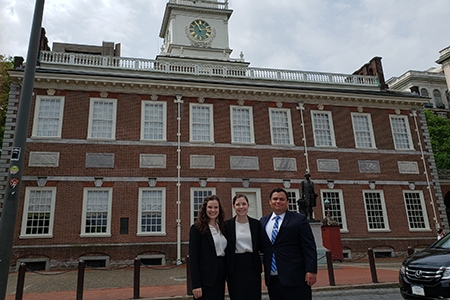
Meet Emma Li '22
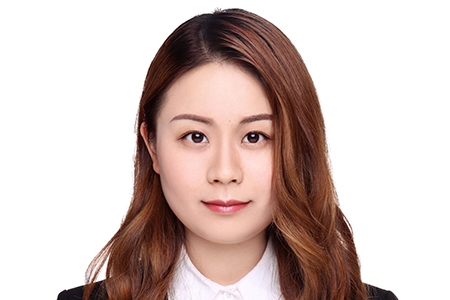
Emma began an internship with the Wilson Center on Science and Justice just as people across the nation were taking to the streets to protest the brutal police killing of George Floyd. Within weeks, she was leading the center's Policing Reform Project to track bills introduced by lawmakers at the federal and state levels on such topics as use of force, officer certification, data collection, and liability. Li, who also served as 1L representative and co-president of the Asian Pacific Law Students Association, said working on the project during the tumultuous summer of 2020 was "a particularly powerful experience." Li is now an Associate Attorney for Gibson, Dunn & Crutcher, a perpetual leader in litigation and corportate matters, based in the firm's New York office.
I hope that our work will be part of the collective effort changing the set custom in policing legislation. It also gives me new appreciation on lawyers' roles in pushing for positive social changes.


